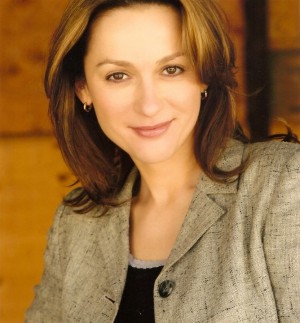Accent Pieces: Aleksandra Kaniak on Making a Place for Polish in Hollywood
GALO: What role have you most enjoyed so far?
AK: I really enjoyed working on Water for Elephants. I enjoyed playing that particular part because I usually play very harsh characters. I play criminals, police officers–you name it. This time I just played this really sweet, warm motherly type that I haven’t done before. I just wish the part were a little bit bigger.
When we finished shooting my scenes, I thought, ‘I need more, this is not enough for me. I want to explore this character more.’ I really, really enjoyed that one, though.
I played a part on The Sentinel, a TV series a few years ago on USA, where I played Lt. Katrina Vaslova. That was an interesting character. She was a police officer who was here on a mission from Russia. She was a very strong professional woman with a hidden vulnerability beneath. I think she is a character who would be the closest to me. So, I loved playing that. Of course, Lt. Zofia on Red Alert – you can’t argue with Lt. Zofia. I mean, really cool lines and the makeup and the bodysuit. It was a really cool look.
GALO: Have you done dialect coaching for other productions?
AK: There was a show called The Worst Week that I worked on. Interestingly enough, on that show they had an American actor, and they hired me as a dialect coach for her, because she had a lot of Polish lines and one entire scene. They said, “Well, we just need you for her, but you know those other two guys, they are Polish, so we don’t need you.”
So I said, “Ok, let me look at their names.” And I looked at their names and I know them. One is Russian and the other one is Czech.
And I said, “They don’t speak Polish.”
And they said, “They came to an audition and they spoke a language.” And I said, “Yes, one spoke Russian and the other spoke Czech.” They didn’t know the difference. I would. Because being Eastern European, I am very familiar with Czech. I [also] speak pretty good Russian, so I knew. And they said, “Well, Ok, I guess we’ll just have to hire you for them as well.” Of course, the fact that the guys were Eastern European, they were very easy to work with. They could pronounce everything; they were familiar with the language. Working with an American who wants to speak Polish, it’s not exactly an easy language. Americans have a difficult time with the pronunciation as well. So I worked with them on that.
This year, I got hired to work with Antonio Banderas, because he was shooting a commercial for Poland for a Polish bank called Bank Zachodni WBK. He had a few lines, the majority of them were speaking English, but he had a few lines in Polish.
GALO: Do you have any formal training in dialect coaching?
AK: My background is in acting, so I have a lot of training in acting, and in the meantime, being an actress, I was really focusing very hard to lose my accent. As it turns out, it’s not that easy of a task.
It’s almost impossible when you come to a foreign country as an adult, because Slavic languages are so different than English [ones]. I worked with some amazing dialect coaches. I listened to a lot of tapes [and] did a lot of work on my own. As far as how the language works, there is a difference in how you breathe, how your throat works, where you place your tongue in your mouth to achieve certain sounds. The Polish “l” is different from the English “l,” even though they sound sort of similar, but it’s because of your tongue placement.
So I studied all of that. Not to be a dialect coach, I didn’t think that would happen – I was studying it for me. And also, being a foreigner I wanted to do other accents, not just Eastern European. I do a very good Russian accent. I worked on that. I can do Italian, I can do French, and sort of like a non-descript European accent. So I really studied a lot of different accents and dialects, and then I ended up teaching people. It wasn’t my intention. I didn’t know that there is a market for it, but obviously there is. Not a huge one, but there still is.


